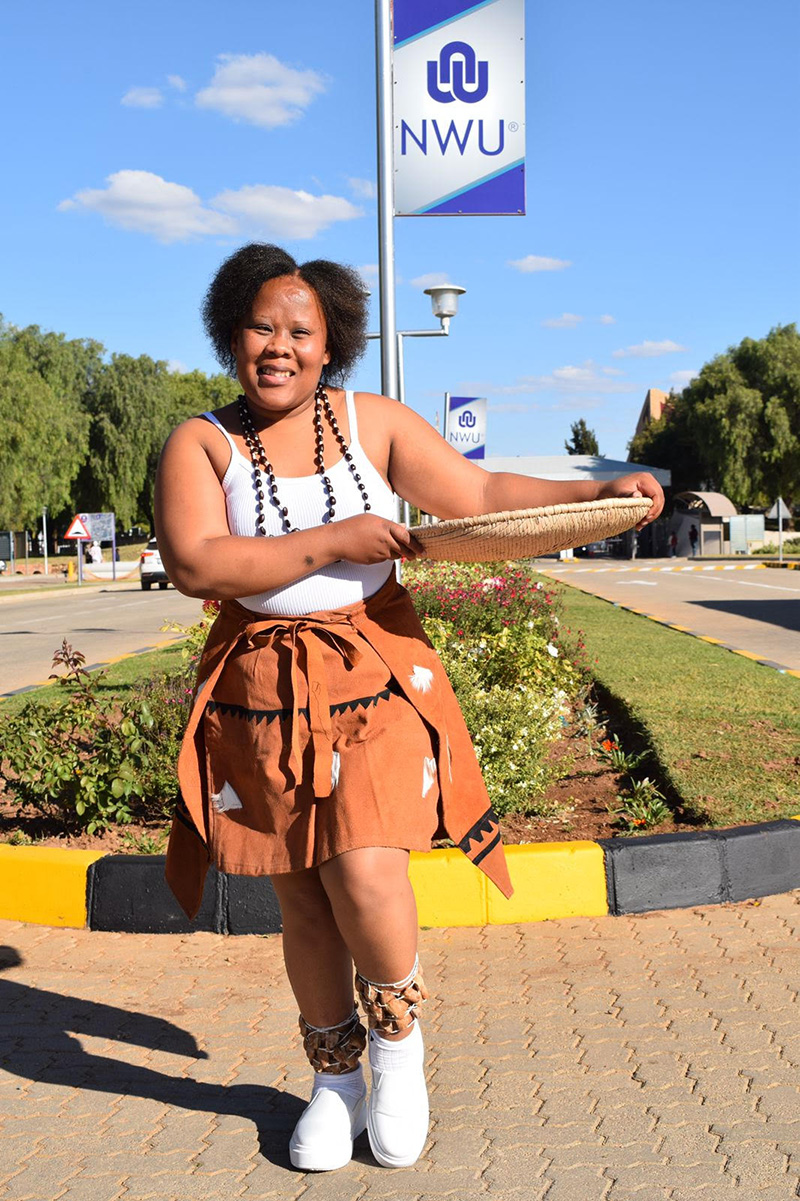As the African continent marks Africa Month Africa Day on 25 May, a remarkable story of cultural resilience and leadership is unfolding in the North West Province.
Khumo Feni, a graduate from the first cohort of the Bachelor of Indigenous Knowledge Systems (B.IKS) programme at the North-West University (NWU), is taking centre stage in the documentation and preservation of Batswana indigenous knowledge systems (IKS).
Rooted in the traditions of the Batswana people and armed with academic training in Indigenous methodologies, Khumo is leading a groundbreaking provincial initiative to record, protect and revitalise the rich heritage of her community. Her work highlights the critical role women play in the custodianship of culture and knowledge.
Born in Taung, in the heart of the North West, Khumo was raised under the Baphuduhucwana Traditional Council, a culture-rich royal council situated in the UNESCO-declared Maropeng Cradle of humankind.
The Batlhaping ba ga phuduhucwana are amongst the few practitioners of go tlhatlhela Bojale and Bogwera Indigenous rites of passage, which are essentially long-standing education systems of Setswana culture in North West. Her grandmother, a Setswana language expert, cultural practitioner and oral historian from Mokgareng Village, was one of her first teachers, imparting Setswana knowledge that would later result in a distinction symbol for Setwana in her matric in 2012.
“Our knowledge was never lost; it was simply not digitised,” Khumo says. “I feel called to honour the voices of our grandmothers, borakgadi and magosi, by making sure that our stories, customs and wisdom are documented in our own languages.”
Her efforts form part of a broader provincial programme supported by the Department of Science and Innovation, in partnership with traditional authorities and research institutions.
At the core of this work is the systematic documentation of Batswana indigenous knowledge, including traditional healing practices and plant-based medicine, oral histories and praise poetry (lobolo, dithoko and difela), and indigenous food security systems.
What makes Khumo’s work unique is her community-based approach. Rather than extracting information, she works collaboratively with elders, traditional leaders and local youth. Her motto, “Moseka phofu yaabo ga a swe lentswe”, reflects her belief that indigenous knowledge must remain in the hands of those who live it. “As a Motswana grandchild, I carry the responsibility of protecting our ways,” she says. “Women have always been the silent archives of our traditions through song, storytelling, nutrition and healing. Now we are becoming the authors too.”
Inspiring a new generation
Her leadership has inspired a new generation of young IKS scholars who are being trained in indigenous research and decolonial scholarship methods under her mentorship. Many see her not just as a scholar, but as a cultural warrior, preserving identity in an age of globalisation.
“She has made us proud to be ambassadors of IKS, and always emphasises the need for us to commodify intellectual property embedded in our indigenous knowledge” says Bokamoso Nkunyane, a student under Khumo’s mentorship and herself a published author and poet.
Quinton, a fourth-year B.IKS student under her mentorship, adds: “She’s teaching us that meta-science is embedded in our culture and our elders’ knowledge.”
In honour of Africa Day, which celebrates the richness and diversity of African heritage, Khumo reminds us that IKS are not relics of the past but blueprints for the future. Her work reinforces that African solutions to African problems already exist within our communities, whether in data management and cybersecurity, healthcare access, conflict resolution, governance, social cohesion and moral regeneration, and climate change.

Khumo Feni
